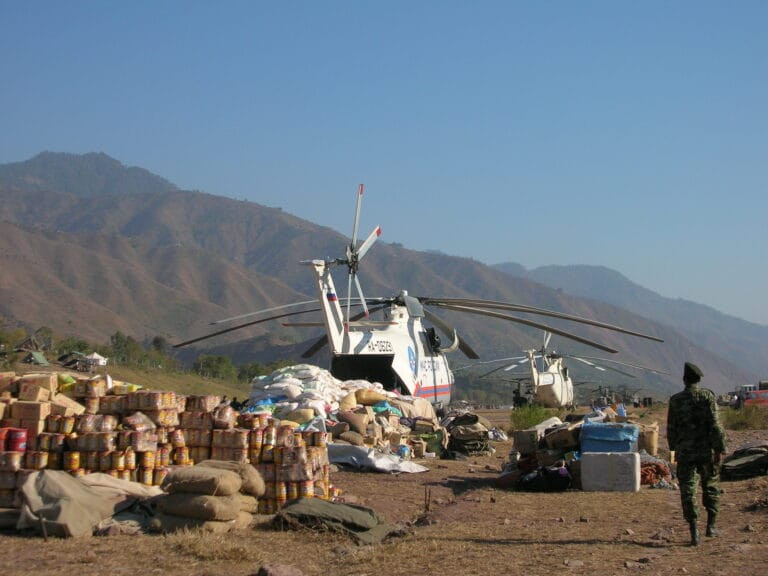- Air Charter Service (ACS) played a critical role in the humanitarian response to the 2005 Pakistan earthquake, delivering aid to remote and isolated mountain villages in Kashmir.
- The operation involved 78 fixed-wing aircraft charters and daily rotations of four Mil-8 cargo helicopters, transporting over 3,500 tonnes of relief supplies including shelters, water purification kits, and medical equipment.
- ACS coordinated closely with the British Government, UN agencies, and Red Cross organizations, overcoming landslides and snow to ensure aid reached displaced communities efficiently.
Twenty years after the devastating Pakistan earthquake, some of the team involved in Air Charter Service’s humanitarian response sit down to talk about one of the most complex aid relief operations the air charter industry has seen in recent times.
On 8th October 2005 a devastating earthquake, measuring 7.6 on the Richter Scale, struck northern Pakistan, leaving 88,000 people dead and around 3 million displaced. Air Charter Service was called into action in the immediate aftermath.
From the initial search and rescue teams with their dogs, to getting the aid to the remote mountain villages in Kashmir, there was no shortage of challenges that the team faced.
Many of the communities affected were in isolated parts of the country, cut off by landslides, and later, by snow. To overcome the problem of getting the relief goods – which included shelters, water purification kits, medical supplies and equipment – to these areas, ACS worked in conjunction with the British Government, who donated four Mil-8 cargo helicopters.
Joel Fenn, who was based on the ground in Abbottabad for four months, speaks about how he oversaw the cargo arriving and the daily flights with the Mil-8s distributing the aid to where it was needed. Meanwhile Dan Morgan-Evans was coordinating efforts from ACS’s London headquarters, as the company worked closely with, amongst others, the UNHCR, UNICEF, UNWFP and various national Red Cross organisations around the world.
“It was our largest concentrated relief effort at that point”, explains Dan Morgan-Evans, ACS’s Group Cargo Director, “with 78 fixed wing aircraft charters, on top of daily Mil-8 helicopter rotations distributing the aid that was coming in on the larger aircraft”. In total more than 3,500 tonnes of cargo flew on ACS-chartered aircraft over the course of the operation.





